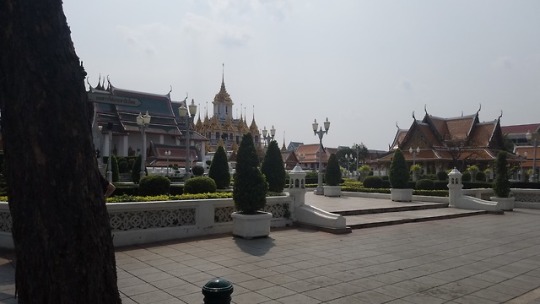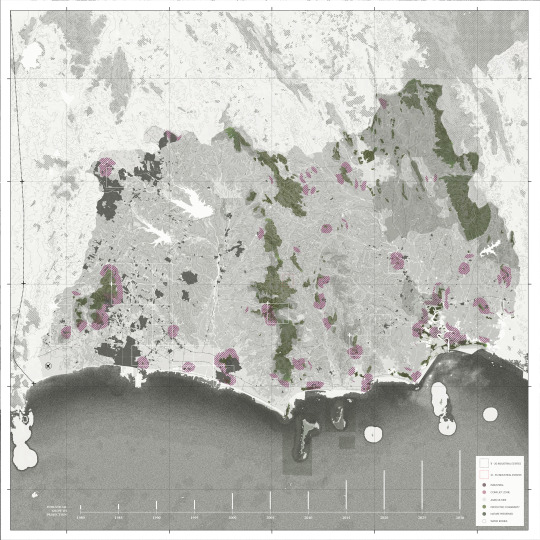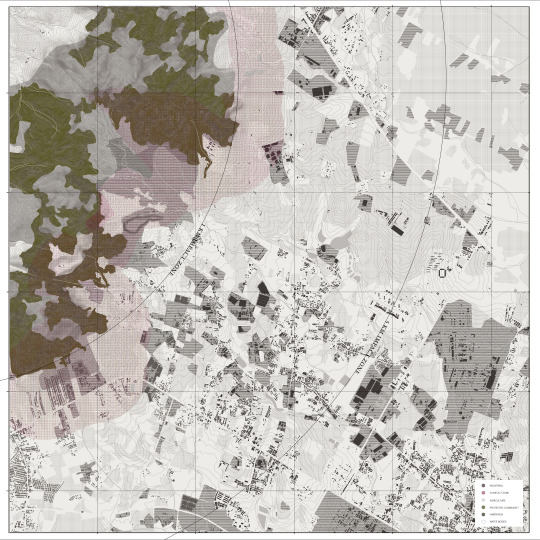#Unproductive in Thailand
Text
Catching up on Cherry Magic (TH) and omg I want someone the level of dork Karan is.
7 notes
·
View notes
Text
Yakyak yak

Will and company loved the idea of the puzzle theme, but felt it didn’t have the same ring as the other three theme entries. As a matter of fact, TATTLETALE was in the first version. I love playing with the onomatopoeia of words like BLABBERMOUTH and TATTLETALE. Every few weeks she would send a note home to my parents, coming up with a new way to say I talked too much! I was “outspoken,” “chatty,” “loquacious” (We had to look that one up!), “vocally engaged” and on and on. Evelyn Singer, at Northrop Collegiate School for girls in Minneapolis, circa 1970. This puzzle is near and dear to me and is a tribute to my seventh-grade English teacher, Mrs. It also makes its New York Times Crossword debut in this puzzle. TALKAHOLIC does not get a lot of hits on Google, but it is a thing. I had not heard 17A’s TALKAHOLIC or 44A’s BLATHERSKITE (Ah! My research department informs me that the last time BLATHERSKITE was in a New York Times Crossword, it was before I was solving on a regular basis), but they are certainly fun, lively words. Of these, I was most familiar with 27A’s BLABBERMOUTH and 59A’s CHATTERBOX. Michaels offers us a set of four words that describe someone who talks a lot. state postal abbreviations” is MALAWI (MA for Massachusetts, LA for Louisiana and WI for Wisconsin). The “African nation whose name consists of three U.S. Am I alone in this? What words make you laugh?ĥ2A: I love trivia-style clues. Tricky Cluesġ0A: Everyone here knows that, although the country is now called Thailand, because the story takes place in the 19th century, when the country was called SIAM, right? Right.Ģ2A: I probably need to look into this with a medical professional, but the word THWART is the only one in the English language that can send me into peals of laughter. Be careful with words like “Really?” or “Wow!” because they will trigger a sidebar explanation of everything the speaker just said, after which he or she will continue with the original story and keep talking until it’s time for one or both of you to start collecting Social Security.Īnd now, I will stop blathering and start explaining. The key to getting through a one-sided conversation while conscious is to maintain eye contact while interjecting an interest-feigning sound like “Huh!” every now and then. I also have been on some wonderful trips to blissful places in my head, made mental to-do lists and wondered what my dog was doing at home, all while I was busy appearing to be listening. Try not to snore, because that’s a sure giveaway, and it’s often a cue to the compulsive talker to - heaven forbid - start their story all over again (“You made me lose my place! Now where was I? You know what, let me start from the beginning ….”) The trick is to master the dual arts of sleeping with your eyes open and not falling out of your chair, because those are both clues that you might not actually be listening. I take some of my best naps when someone is relentlessly talking at me. Peaceful, isn’t it? Sure, it’s easy to get irritated because the other person is using up all the oxygen in the room, but I think that’s an unproductive way to look at the situation. MONDAY PUZZLE - Have you ever been in conversation with someone who just goes on and on and on, talking until they’re blue in the face without letting anyone get a word in edgewise?

0 notes
Text
Spark Enterprise Consulting
This exclusive one-yr program of private and skilled progress is designed to arrange promising leaders to manage and develop RIA corporations. The program combines premier tutorial curricula and faculty from a few of the nation’s high graduate faculties, one-on-one government teaching, and the deep trade expertise of Schwab Advisor Services™.
In a consumer-friendly format, the scorecard helps companies establish alternatives to improve their back-workplace efficiency and enhance their client expertise. It also opens access to resources, instruments, and training to assist corporations take motion.
Schwab's annual RIA Benchmarking Study makes it simple to see the place your agency stands in critical business measures relative to your peers. Well over 1,000 firms participate yearly— representing over $1 trillion in assets beneath management—to gain deep insights that help information their strategic decision-making.
From platform innovation and instruments to interactive courses and on-demand studying, we provide digital solutions to keep challenging the training expertise.
In a quickly remodeling business and shifting regulatory landscape, how can capital markets companies gain flexibility to chart the proper digital future? With transformation methods tailor-made to your needs, we ship solutions that deepens customer loyalty, drives lengthy-term relationships and will increase profitability.
Cognizant works with auto OEMs, suppliers and sellers to define their business strategies, develop solutions for rising markets and maintain technology on the entrance end of digitization.
We assist our shoppers achieve progress and innovation through digital transformation by strategizing their digital IT roadmap, simplifying IT working fashions, modernizing technology structure, and securing assets and information.
As companies move from doing digital to being digital, it’s imperative that the business model is centered round knowledge, with analytics and artificial intelligence providing the perception wanted to compete as a market leader.
Managed Innovation—Uses an perception-pushed, agile working process to prioritize and rapidly develop shopper solutions delivering new forms of worth.
Independent investment advisors usually are not owned by, affiliated with or supervised by Schwab. recruitment thailand The above mentioned firms and their staff are not affiliated with or employees of Schwab until in any other case famous. They shouldn't be construed as a advice, endorsement of, or sponsorship by Schwab.
Seventy-5 % of companies have already got a minimum of one business operate or course of that has been impacted. A laptop network is your company’s brain — if it’s not functioning correctly, it’s onerous to get issues done.
There’s nothing worse than having unproductive employees because their e-mail doesn’t work or your server crashed. Whether you’re a big or small enterprise, a smoother running, hassle-free network is important to your success.
Insight to Transformation—Creates digital technique that defines a shopper’s trajectory for transformation and accelerates value creation. Digital transformation is greater than a buzzword—it’s a method for survival and development.
The views expressed are these of the third get together and are supplied for data functions only. Experiences expressed aren't any guarantee of future performance or success and may not be representative of you or your experience.
Take the lead on industry tendencies and finest practices with our complete white papers covering a spread of RIA-specific matters, from strategic planning to constructing an effective referral strategy.
BCCS has a motivated staff of assortment agents who continually attempt to meet and exceed the expectations of our numerous client base. BCCS is dedicated to bettering our shopper’s assortment processes and outcomes.
Business Consulting & Collection Services, LLP (“BCCS”) is an Indiana collection company working for Indiana companies. Schwab Advisor Services serves unbiased funding advisors and contains the custody, trading and support companies of Schwab.
1 note
·
View note
Text
feeling really lonely and weird since the boyfriend is away on a short trip to thailand... ajhjfhakghjka bleurgh
feeling unproductive recently, and not great so this is not super helping my mental state. i’ll try and get around to the requests i’ve gotten, especially for theonsa manips! sorry it’s taking this long guys, i wish i had a better explanation other than ‘mentally not up for it’ :(
8 notes
·
View notes
Text
What's Behind The Thailand "Funk" Syndrome I've Seen So Many Foreign PPE Brokers and Traders Fall Into...
What’s Behind The Thailand “Funk” Syndrome I’ve Seen So Many Foreign PPE Brokers and Traders Fall Into…
Photo: Fat beer-bellied farang squashed in a chair from too many cheap beers. Photo credit: StickmanBangkok
It’s really interesting how it’s nearly a given that after about 6-8 weeks, brokers, mandates, and traders who come to Thailand to follow up on their deals or make deals, inevitably sink into a “funk” of passivity or inefficiency, to varying degrees. I’ll own up. It takes one to know one.…

View On WordPress
#Degenerating in Thailand#Personal Brush with Slackerhood#Thailand Funk Syndrome#Unproductive in Thailand
0 notes
Text





life in december
Last life update of 2018, time sure runs fast. It is a Trishia's tradition to post a life update every 20th of the month and yesss today is Christmas! I have been unproductive this month, I have not finished any painting and I stopped all my series because I lost motivation and I'm lazy af. Typical trishia.
01: started a new series called "Flower Child". I will be posting more of it once I finish my first piece for the series.
02: I have been listening to Rex Orange County, Joji, The Red Pears, and Tim Atlas way too much. I made a playlist for you, "Are ü happy". Go ahead and explore my favorite tracks.
03: Momma already booked a flight for us to Bangkok this January. Yay ✨ another passport stamp and more entries to fill my journal. More shopping also because Thailand is known to have cheap jewelry and clothes, I cannot wait. My inner girly self is fucking showing I can't even.
04: I got a tattoo!!! (Yes finallyyy) Spent all my money on my first ink and ended up a disgrace to the family. Whatever, mom eventually liked it 😅.
05: It's our 2nd year anniversary yesterday and I cannot believe I'm still in love with the man I met last 2016. He's a seafarer and he's away for 5 months but he'll probably be back by May 2019. It's totally fine, I'm used to it and the distance doesn't bother me at all. Trust and communication is whats keeping us stronger than ever.
That's all for the last life update of 2018! Merry Christmas everyone! 🌻✨
1 note
·
View note
Text
tagged by @unclesamwilson!!
1. Nicknames: my family calls me “carm” but almost nobody else does and i don’t really like it from other people...
2. Height: 5'1″
3. Orientation: straight
4. Nationality: american/canadian
5. Favorite fruit: this is such a fraught question. mangoes. passionfruit. peaches. cherries. raspberries.
6. Favorite season: i love SUMMER!!! and spring. but summer is my jam except my office has no air conditioning so i’ve become super unproductive
7. Favorite Flower: i have a magnolia branch tattooed on me but this is a very hard question to answer also. i love sunflowers and irises too, and calla lilies (but not regular ones).
8. Favorite Smell: lavender, my mom’s perfume, baked goods, fresh grass, lightning strikes
9. Favorite word: based on my usage i’d have to say it’s probably “fuck” but i’m sure there are others that i like. “brouhaha” comes to mind.
10. Favorite Color: yellow
11. Favorite animal: penguins!
12. Coffee, Tea, or Hot Chocolate? hot chocolate! but i don’t drink it that much. i drink a lot of tea.
13. Average hours of sleep: on average i spend about 9 hours in bed a day but i probably only sleep about 8.
14. Are you a dog or a cat person? i love dogs but my personality is kind of more of a cat person personality because i like that they’re more independent.
15. Favorite fictional character: god uh meg and charles wallace murry, harry potter, minerva mcgonagall, merry brandybuck. puck. jesper fahey. oh and stove robbers i guess.
16. How many blankets do you sleep with: one sheet and one heavier blanket even in summer. luckily i have air conditioning at home
17. Dream trip: the philippines. vietnam and thailand. i’d like to go to ireland. south korea. morocco. peru.
18. When was your blog created? i think i started just after i graduated high school so like...2010?
19. Number of followers: closing on 1300
20. Random fact about yourself: i think the tall man from supernatural must live near me because i see him a lot when walking around my neighbourhood
tagginggggggggggggggggggggggggg @boksoonghwa @murderonthemattress idk who else but let me know if you do itttt <3
5 notes
·
View notes
Text
Agricultural Films Market Analysis, Trends, Top Manufacturers, Share, Growth, Statistics, Opportunities & Forecast to 2028
Agricultural Films Market Share Analysis
The agricultural films market competitive landscape provides details by competitor. Details included are company overview, company financials, revenue generated, market potential, investment in research and development, new market initiatives, global presence, production sites and facilities, production capacities, company strengths and weaknesses, product launch, product width and breadth, application dominance. The above data points provided are only related to the companies’ focus related to agricultural films market.
The major players covered in the agricultural films market report are Berry Global Inc., KURARAY CO., LTD, Coveris, RKW Group, BASF SE, Dow, Trioplast Industrier AB, Rani Group, The Armando Alvarez, Groupe Barbier, AL-PACK Enterprises Ltd., Exxon Mobil Corporation, Novamont SpA, Britton Group Limited, PLASTIKA KRITIS, Industrial Development Company sal, ACHILLES CORPORATION, POLIFILM (GROUP), Agriplast Tech India Private Limited among other domestic and global players. Market share data is available for global, North America, Europe, Asia-Pacific (APAC), Middle East and Africa (MEA) and South America separately. DBMR analysts understand competitive strengths and provide competitive analysis for each competitor separately.
Get Sample Copy of Agricultural Films Market Report@ https://www.databridgemarketresearch.com/request-a-sample/?dbmr=global-agricultural-films-market
Global Agricultural Films Market Country Level Analysis
The agricultural films market is analyzed and market size, volume information is provided by country, type and application as referenced above.
The countries covered in the global agricultural films market report are the U.S., Canada, Mexico in North America, Germany, Sweden, Poland, Denmark, Italy, U.K., France, Spain, Netherland, Belgium, Switzerland, Turkey, Russia, Rest of Europe in Europe, Japan, China, India, South Korea, New Zealand, Vietnam, Australia, Singapore, Malaysia, Thailand, Indonesia, Philippines, Rest of Asia-Pacific (APAC) in Asia-Pacific (APAC), Brazil, Argentina, Rest of South America as a part of South America, UAE, Saudi Arabia, Oman, Qatar, Kuwait, South Africa, Rest of Middle East and Africa (MEA) as a part of Middle East and Africa (MEA).
Asia-Pacific dominates the agricultural films market due to the favorable government initiatives such as research and development activities in agriculture sector. Europe is expected to witness the fastest CAGR during the forecast period of 2021 to 2028 because of the stringent environmental regulations regarding film disposal and manufacturing and shifting consumer focus towards biodegradable materials in the region.
The country section of the agricultural films market report also provides individual market impacting factors and changes in regulation in the market domestically that impacts the current and future trends of the market. Data points such as consumption volumes, production sites and volumes, import export analysis, price trend analysis, cost of raw materials, down-stream and upstream value chain analysis are some of the major pointers used to forecast the market scenario for individual countries. Also, presence and availability of global brands and their challenges faced due to large or scarce competition from local and domestic brands, impact of domestic tariffs and trade routes are considered while providing forecast analysis of the country data.
Browse Complete Report@ https://www.databridgemarketresearch.com/reports/global-agricultural-films-market
Agricultural Films Market Scope and Market Size
The Global agricultural films market is segmented on the basis of type and application. The growth among segments helps you analyze niche pockets of growth and strategies to approach the market and determine your core application areas and the difference in your target markets.
On the basis of type, the agricultural films market is segmented into linear low-density polyethylene (LLDPE), low-density polyethylene (LDPE), reclaim ethylene-vinyl acetate (EVA), high-density polyethylene (HDPE) and others.
On the basis of application, the agricultural films market is segmented into greenhouse film, mulching film and silage film. Greenhouse film is further segmented into classic greenhouse film, macro tunnel/walking tunnel and low tunnels. Mulching film is further segmented into transparent or clear mulch, black mulch and other mulches. Silage film is further segmented into silage stretch wrap, silage sheet and silage bag.
Market Analysis and Insights : Global Agricultural Films Market
The agricultural films market is expected to witness market growth at a rate of approximately 6.30% in the forecast period of 2021 to 2028 and is expected to reach USD 14.36 billion by 2028. Data Bridge Market Research report on agricultural films market provides analysis and insights regarding the various factors expected to be prevalent throughout the forecast period while providing their impacts on the market’s growth. The rise in food demand owing to rise in population globally is escalating the growth of agricultural films market.
Agriculture films are also called plasticulture which refers to the utilization of plastic materials in numerous agricultural applications. The use of the product has become highly beneficial in overcoming major challenges by converting unproductive deserts into agricultural lands. These films are utilized for enhancing productivity of agricultural land. The films provide several functions including silage, mulching and greenhouse. LDPE, HDPE and EVA/EBA are commonly used in the manufacturing of these films.
The high usage of agricultural films market for covering greenhouses and are wrapped around fodder or placed over soil to improve crop quality and increase overall productivity and the increase in need to increase agricultural productivity to cater the high demand for food act as the major factors driving the agricultural films market. The rise in the number of innovations in the industry such as fluorescent, NIR blocking, ultra violet (UV) blocking and ultra-thermic films and the increasing popularity of biodegradable agricultural films because of their eco-friendliness accelerate the agricultural films market growth. The growing demand for agricultural films as they are known to be flexible and easy to produce material and development of multi-layer, UV protection films and particle in order to enhance agricultural productivity influence the agricultural films market. Additionally, the technological advancements in horticulture, growth population and high food demand positively affect the agricultural films market. Furthermore, the rise in nano greenhouses, increase in the utilization of biodegradable films in developed regions and innovations in agricultural films extend profitable opportunities to the agricultural films market players in the forecast period of 2021 to 2028.
On the other hand, high cost associated with the installation and negative effects of plastics on the environment are the factors expected to obstruct the agricultural films market growth. The implementation of stringent government regulations regarding usage of plastics and polythene is projected to challenge the agricultural films market in the forecast period of 2021-2028.
This agricultural films market report provides details of new recent developments, trade regulations, import export analysis, production analysis, value chain optimization, market share, impact of domestic and localized market players, analyses opportunities in terms of emerging revenue pockets, changes in market regulations, strategic market growth analysis, market size, category market growths, application niches and dominance, product approvals, product launches, geographic expansions, technological innovations in the market. To gain more info on agricultural films market contact Data Bridge Market Research for an Analyst Brief, our team will help you take an informed market decision to achieve market growth.
Global Agricultural Films Market, By Type (Linear Low-Density Polyethylene (LLDPE), Low-Density Polyethylene (LDPE), Reclaim, Ethylene-Vinyl Acetate (EVA), High-Density Polyethylene (HDPE), Others), Application (Green House Film, Mulching Film, Silage Film), Country (U.S., Canada, Mexico, Germany, Sweden, Poland, Denmark, Italy, U.K., France, Spain, Netherland, Belgium, Switzerland, Turkey, Russia, Rest of Europe, Japan, China, India, South Korea, New Zealand, Vietnam, Australia, Singapore, Malaysia, Thailand, Indonesia, Philippines, Rest of Asia-Pacific, Brazil, Argentina, Rest of South America, UAE, Saudi Arabia, Oman, Qatar, Kuwait, South Africa, Rest of Middle East and Africa) Industry Trends and Forecast to 2028
Browse Related Reports:
Chemicals Market – Industry Trends and Forecast to 2028
Adhesive Formulating Technology Market – Industry Trends and Forecast to 2028
Antimicrobial Hospital Textiles Market – Industry Trends and Forecast to 2028
1 note
·
View note
Text
WARNING: descriptions of vomit below!
read the warning!
read the warning!
read the warning!
okay, you’ve been warned! please enjoy the fic!
“Boy,” Phichit said as he walked with Yuuri to the rink one day. “It’s cold in Detroit! It never gets this cold back home!”
Yuuri responded to his friend’s comment with a strained smile. Phichit had been talking about home non-stop recently, and it was putting Yuuri a bit on edge. Not because Phichit ever seemed upset, but because he actually never seemed upset. Which didn’t make sense to Yuri who, when he’d gone overseas at the age of 18, had experienced crippling home sickness starting just a few months after he’d arrived in the U.S. Only now, just over a year later, he was finally past it. The younger boy, however, having arrived no less than half a year ago, showed no signs of sadness. Yuuri sighed, and wondered if perhaps talking about his home country was Phichit’s way of dealing with missing it.
“Phichit, does it snow in Thailand?”
“Oh, no! Not like it will here!”
Yuri smiled, genuinely looking forward to seeing his friend’s reaction to the white substance. “You’ll love it.”
Phichit grinned back, but soon frowned as a chill ran up his spine and made him shiver. He looked eager as he pushed open the doors to the rink. The two boys walked inside together. They chatted a bit more, but soon fell silent as they started to practice.
It was a rough day for both of them, with a lot of endurance training as well as technique, but Yuuri couldn’t help but notice the way Celestino scolded Phichit far more than normal. When they took a break, Phichit’s face was flushed.
“You okay?” Yuuri asked him as he grabbed some water.
“Hm?” Phichit put his water bottle down and raised an eyebrow. “Sure, why?”
“Oh, you just…” Yuuri struggled to put it into words. “Your cheeks are pink and it seems like you’re struggling more than normal. Not that you’re doing bad!” Yuuri rushed to amend any offenses he may have committed, but Phichit waved him off.
“Nah, you’re right. My cheeks are just red from the exertion, but I really haven’t been at my best today.” Phichit smiled, and Yuuri thought it looked a bit forced, but thought maybe he was just being paranoid. “Don’t worry about me, Yuuri, everyone has bad days, right?”
“Y-Yeah, just- let me know if there’s anything I can do to help, alright?”
Phichit nodded gratefully, gave a thumbs up, and headed back out to the rink. Yuuri followed soon after.
Unfortunately, Phichit’s skating got progressively and almost exponentially worse as the day wore on. Not only that, but Yuuri’s capabilities went down hill as well. Phichit may have been his opponent, but he was also Yuuri’s best friend, and he couldn’t help but be preoccupied and concerned. He’d never seen Phichit falter this badly, and it scared him a little, mainly because somehow, Phichit was still smiling.
Eventually Celestino told them to go home early for the day. Both boys tried to convince their coach that they were fine, but the older man just shook his head and huffed out a laugh as he practically pushed them out the door.
“You two,” he handed them their skates. “Deserve a break. Take it for what it is and enjoy your night off, okay? Maybe it’ll snow and we can call it a snow day,” he said with a wink, just before he closed and locked the doors to the rink. Both boys looked at each other and dissolved into laughter. Phichit’s, however, cut of quickly.
“Phichit, are you-“
“I’m fine, Yuuri. You don’t need to worry about me! Really,” Phichit insisted, walking ahead as the older boy hesitated. Yuuri jogged to catch up, only to freeze suddenly to avoid running into his friend, who had come to a sudden stop.
“Phi-“
Yuuri watched Phichit’s back as the younger boy’s shoulders jerked, hands over his mouth. For a moment, Yuuri wondered if his friend was crying, and his heart skipped a beat at the thought. He had never seen Phichit show any real signs of being upset, and the thought that he might have been containing sadness for all of these months made it hard for him to think clearly. Hesitantly, but too concerned to stop himself, he stepped forward so that he could face the trembling boy.
He wasn’t crying, but he did look more upset than Yuuri had ever seen him. For a moment, all he could do was stare at the broken expression on the his friend’s face.
“Phichit, what’s wrong?” He finally asked, with all of the feeling and sincerity he could convey.
Another handful of seconds passed as Phichit stood, trembling, eyebrows fumbling on his face with conflicting desires to open up and stay closed. Yuuri waited, and waited, and waited, until, at last, Phichit let out a small whimper.
“Yuuri!” Phichit whined, and spread his arms wide for a hug. Yuuri readily returned the gesture and allowed his friend to fall into him, and began rubbing his back soothingly. Phichit shuddered, and whispered after some time, “Yuuri, I - hic - I feel sick.”
Yuuri tensed momentarily; it wasn’t what he’d expected. Still, that didn’t mean he wouldn’t do all he could to help. He took a deep breath and pushed Phichit away, taking in his washed out appearance, and nodded.
“Okay,” he said firmly, one hand gripping Phichit’s shoulder, “first things first, let’s get you home.”
Phichit made a noise of dismay, but nodded.
“Hey,” Yuuri said gently, giving Phichit’s shoulder a squeeze, “if you’d rather, I can call a cab to come pick us up.”
Phichit shook his head. “’t’s not that far. I can - hic! - make it home.”
Yuuri examined the sick boy one more time, and, finding that he didn’t look like he was in danger of passing out, nodded again. He took Phichit’s hand and gave a slight tug. Phichit followed behind, complacent and scarily listless.
“Squeeze my hand if you need to stop, okay?” Yuuri instructed, turning back for a moment after a particularly strong wind assaulted them. He saw Phichit agree with a nod and forged on, trying to ignore the occasional muffled burps and nearly constant hiccups coming from behind him until Phichit gave him a reason to do otherwise.
They were only about a hundred feet from their apartment when Phichit squeezed Yuuri’s hand. Yuuri turned around immediately, just in time to see Phichit swaying on his feet, just in time to catch him before he fell.
“Woah, hey,” Yuuri mumbled, lowering his friend to the ground gently and trying not to panic. “Phichit. We’re so close. Come on.”
“S-So c-cold,” Phichit mumbled, eyes closed. Yuuri breathed a sigh of relief. Phichit hadn’t passed out, his legs had probably just gone numb and become too weak to support the rest of his body. Yuuri took off his own jacket and wrapped it around the sick boy, who, never having had need of one, didn’t even own a winter coat. Then he helped Phichit to his feet, and wrapped an arm around him.
“We’ll be there in just a minute.”
“Feel so - hic! - sick. Don’ wanna - hic! - be sick,” Phichit replied, his trembling worsening as tears pricked his eyes. Yuuri scowled, caught in an internal debate. He eyed their apartment. He could see it from where he was standing. He eyed Phichit, who was short and thin, but packed with muscle. He was also shaking like a leaf and on the verge of a breakdown and looked halfway to death. Yuuri shook his head.
“Hang on,” he mumbled, and scooped Phichit up in his arms. The boy made a small noise of surprise, but didn’t protest.
By the time they reached their apartment, Yuuri was ready to collapse and his fingers were frozen, but they made it. He set Phichit down, jolting him out of a light sleep, and fumbled with the key until the door flung open. He nudged Phichit inside and followed in after.
“Ah,” Yuuri muttered. “The heat feels amazing, huh?” He kicked off his shoes. When he received no response, he looked up. Phichit was standing just past the doorway, looking for all the world lost in his own house. Yuuri sighed.
“Phichit, how about you sit down on the couch for now and I’ll bring you some water and blankets as soon as I can.”
Dazedly, Phichit did as he was told. Yuuri gazed after him with worry momentarily before rushing to gather some supplies. He also called Celestino to explain the situation, and the coach, who’d had his suspicions to begin with, said that he would be over to help out soon. By the time Yuuri got back to the couch, Phichit was curled in a ball, sleeping. Yuuri smiled softly and sat in the chair next to the couch. He’d only just relaxed into it when Phichit jerked awake, one hand on his stomach, and the other on his mouth. Yuuri didn’t waste a second in grabbing the plastic bowl he’d retrieved and pushed it into Phichit’s hands.
“I don’t-“ Phichit cut himself off with a gag, but nothing came up and the bowl tumbled from his hands. “What’s-“ Phichit gagged again, and Yuuri sat beside him to help him stay upright and to old the bowl steady.
“Yuuri? What are you… Thailand? Where am I?” Phichit looked around disconcertedly, and Yuuri put a hand on the boy’s forehead. It was a bit hot, but not hot enough for him to be hallucinating. Phichit rubbed his eyes blearily, and Yuuri frowned.
“We’re in Detroit, Phichit, where did you think you were? This is where we met. We just had practice today-“
Yuuri stopped talking when Phichit let out a strangled sob. He ducked his head into the bowl as tears spilled from his eyes.
“I thought - hic! - I had a dream, that I was back- back in - hic! - Thailand.”
Yuuri rubbed his friend’s back, not knowing what else to do. “Aw, Phichit. You miss home?”
Phichit nodded and then shuddered before gagging, still unproductively. Yuuri worried that he was holding back. He hoped Celestino would arrive soon. In the mean time, he decided to do what he could to distract his friend from his ailment.
“What’s Thailand like?” Yuuri knew from experience that there was little that could be done to help with homesickness, but he’d always appreciated having someone who would listen to him talk about Japan. Judging from the way Phichit’s face relaxed upon hearing the question, his friend felt the same way. Phichit looked at Yuuri for a moment before staring off wistfully into the distance.
“It’s warm. And - hiccurp! - the food is the best. And…” Phichit blinked and turned back to Yuuri with his tears renewed. “And the people - hic! - there are people who love me. They’re warmer there. They’re… home.”
Phichit’s lip quivered as he finished, and Yuuri tried to process this new information. Somehow, he understood. Phichit was, himself, a very warm person. Yuuri was not. The thought that he couldn’t be home for his friend because of that made him sad, but he didn’t know how to be anything else than frigid.
“I just-“ Phichit broke Yuuri’s train of thought with a sob. “I don’t want to be sick - hic! - here, alone, I don’t-“ He doubled over with another unproductive heave and Yuuri’s eyes shot up.
“Wait a second, Phichit,” Yuuri said, brushing the sick boy’s hair out of his face. No, Yuuri did not know how to be warm. But being there for a friend when he was sick so that he didn’t feel like he was all alone? That much he could do. “You’re not alone. Hey. Listen.”
When his stomach settled, Phichit looked at Yuuri.
“I am here. I promise. I don’t know about warmth, but I won’t leave you. And Celestino is on his way here. I know it’s not the same, but just- just give us a chance to become a second home for you, a different one. Please?”
For a moment, Phichit looked like he’s going to start crying again. Then he lurched over the bucket in his lap with a belch, and heaved, finally bringing up a mouthful of vomit. Yuuri flinched unconsciously, but pressed a cold washcloth to Phichit’s neck and told him that everything would be okay.
The doorbell rang, and Yuuri didn’t move, but opted instead to shout permission for the guest to enter. When Celestino walked in to find his two skaters in such a vulnerable position, he immediately took control of the situation, telling Yuuri to give Phichit some space so that the older skater wouldn’t catch the bug and taking Yuuri’s place himself. Before he got up, Yuuri whispered in Phichit’s ear in a pause between heaves.
“I’m here, I promise. Let me know if you want me, and I’ll be here.”
Phichit nodded minutely, and Yuuri got up, somewhat grateful for the opportunity to get away from the potent smell of vomit. He looked out the window and tried to tune out the disturbing sounds of his best friend puking up his guts, but that was easier said than done when each watery belch, each painful retch, each splash against plastic only brought memories of seeing his best friend being sick. He squeezed his eyes shut and focused on Celestino’s steady stream of reassurances. When the last of Phichit’s dry heaves (at least for the moment) tapered off, Yuuri opened his eyes again. He could hardly believe what he saw. He turned around to face his coach and his friend.
“It’s snowing,” he said quietly. Then, louder. “Hey, Phichit, it’s snowing! Huge flakes. It’s…” He trailed off when he saw Phichit looking out the window with wide eyes.
“It’s beautiful,” Phichit said. A smile graced his face, then, for the first time in what felt like days (though it had been only hours), and Yuuri felt as though his entire body sighed in relief. A hand fell on his shoulder and he looked up to see his coach at his side.
“Nice job, kid,” Celestino said with a smile.
“Oh, no, I don’t think I was able to do that much! Thank you for coming! Phichit was freaking out before you got here, telling me about how warm the people in his family are, and I just- well, you’re much more warm than I am, and-“
Celestino raised his hand from Yuuri’s shoulder to cut off his mumbling.
“He wasn’t freaking out when I got here,” he said pointedly, raising his eyebrows. “Calming him down- that was all you. I’m just saying, don’t sell yourself short, alright? Who to say you don’t have a wealth of warmth hidden inside you? Maybe you just need the right kind of person to show you it matter and to bring it out.”
Yuuri thought about that as he walked his coach out, and glanced a Phichit, who was sound asleep, remnants of a smile on his face. It was how he usually slept. Smiling. Waving goodbye to Celestino, he wondered if the older man had a point.
Phichit mumbled in his sleep, and Yuuri walked over, leaning in despite Celestino’s warning.
“Hmrrrmp, snow… snow man, mmm, sled,” Phichit mumbled before rolling over and falling silent. Yuuri grinned.
He hoped, at the very least, that he’d been able to teach Phichit how to appreciate something about the cold. If Phichit could do that much, then maybe Yuuri could meet him half way after all.
send me an ask!
#tw vomit#sick phichit#my writing#old writing#yoi#yuuri katsuki#coach celestino#phichit chulanont#gosh i love this boy so much#if you have requests for him plz send them my way thx
23 notes
·
View notes
Photo

Betta fish is mostly known as “fighting fish”. A small, colorful, territorial fish that is mostly found in the shallow water of marshes, ponds, or slow-moving streams in Asia countries like South Asia, Thailand and Cambodia. Male Bettas are the fiercely protectors of egg betta/fry. Betta Fish are mostly colorful and has a long tails. There are so many types of Betta fish such as:
Crowntail - Its spiky tail and fins give the crowntail Betta its royal look.
Delta - Delta and super delta bettas have tails with straight caudal edges.
Double tail - As its name suggests, doubletail bettas have two distinct tails, each shaped like a half moon.
Combntail - Usually bred by crossing a veiltail with a crowntail, the half sun (or combtail Betta) boasts a slightly less spiky tail than the crowntail.
Halfmoon –One of the prettiest betta breeds, the halfmoon Betta has a 180-degree, fan-like tail that resembles a “D” when fully flared. This long-finned Betta also has unusual coloring.
Plakat -The ancestors of all betta fish, plakat bettas have shorter tails with round or spade shapes.
Rosetail - A kind of halfmoon Betta, the rosetail (or feathertail Betta) also sports a fan-like tail, but has excessive branching and overlapping in its fin rays that resembles the ruffled appearance of a rose.
Fan tail - Sometimes mistaken for other bettas, the round tail (or fan tail Betta) has a single tail that’s round and full.
And Viel tail. One of the most popular betta fish breeds, veiltail bettas are known for their long, spectacular fins and bright colors. New hobbyists usually start with veiltails due to their easygoing nature.
MY EXPERIENCE OF BEING A PET OWNER
-As a beginner of a fish owner, there is a lot of do’s and don’ts you should do and follow. I started having one male and female bettas during quarantine. It is easy to take care of betta but it demands a patience and undivided attention. It is fun having your own little pet in your room and watching them freely swim inside their small aquarium. Watching your betta dancing and swaying there colorful long tails is such a blissful feeling.
Quarantine had me really feel unproductive and lazy. Watching my betta grow and multiply makes me wanna wake up every morning and give them a special care. Just like how they make it feel to me. In deed having these kind of pet is really bring so much joy to you.
0 notes
Text
Global Debt Collection Software Market Research Report 2026
Summary- A new market study, titled “Global Debt Collection Software Market - 2019-2026” has been featured on Wiseguy Reports
Global Debt Collection Software Market Overview:
The global Debt Collection Software Market was worth USD XX billion in 2018 and is forecasted to reach USD XX billion by 2026, at a CAGR of XX% during the forecast period 2019-2026. Debt collection software is used to organize the daily job of the collectors and to minimize the time spent on administrative and unproductive tasks so that they can dedicate working time to high-value tasks. The growth in the industry is mainly due to increasing financial activities, credit and loan transactions in recent years. With the assistance of debt collection software, organizations help their clients to clear their debt challenges. This allows taking ultimate control over how the collection agency software works for the business to increase the profits.
Global Debt Collection Software Market – Market Dynamics
Increasing consumer debts, and rise in need to improve cash flows are driving the demand for integrated debt collection software solutions globally.
Statistics show that healthcare is the main cause of bankruptcy as people turn to credit cards to pay their medical bills. According to the Consumer Financial Protection Board (CFPB), one in three people with a credit record has been contacted by a creditor or collector. However, these calls are often random and ineffective. Traditional methods of debt collection such as aggressive calling, in-house collections, and sending additional invoices are proving to be ineffective and time-consuming.
Also Read: https://www.abnewswire.com/pressreleases/debt-collection-software-market-global-industry-analysis-size-share-growth-trends-and-forecast-2019-2026_447078.html
With increasing consumer debts, the traditional method of debt collection such as robocalls are no longer viable with new laws in practice and modern customer expectations. Thus collection are increasingly adopting new trends which influencing their collection practices directly or consequently.
With digitalization, debt collection can surmount organizational silos to enable improved customer experience, leveraging unified data and an Omillioni channel experience by using debt collection software.
High maintenance and implementation cost are the major restraints hindering the growth of debt collection software market.
Global Debt Collection Software Market – Segment Analysis
The Debt collection software market is broadly segmented by offering type, End user and deployment type.
By end user, the global market for Debt collection software is broadly segmented as BFSI, healthcare, telecom, and others. The BFSI segment is valued at USD XX million in 2018 and is estimated to grow at a CAGR of XX% over the forecast period to reach a USD XX Million by 2026. BFSI segment is expected to grab the leading position in terms of market share in the forecasted period. Collections agencies and finance companies are also part of BFSI and playing a vital role in using debt collection software. Banking and Loan Management organizations are demanding more sophisticated and advanced processes to monitor and manage loans and collections, given the developments in the financial services sector over the past years.
By offering type, the global market for Debt collection software is broadly segmented as software and services. The Software market segment is valued at USD XX million in 2018 and is estimated to grow at a CAGR of XX% over the forecast period to reach a USD XX million by 2026. The software segment holds XX% of market share in 2018 and is expected to increase to XX% by 2026 in Global Debt Collection Software Market. The growth in the segment is mainly due to its scalable and flexible platform.
Debt collection software has the ability to adapt to the changes within the business. It enables enterprises by gathering and managing their debts while paying off their debt. It is scalable and is flexible enough to adjust with ever-evolving processes. The ability to automate manual tasks and processes are the key drivers for the debt software market. With automated debt recovery software, the data available is real-time, accurate and guaranteed.
Global Debt Collection Software Market – Geographical Analysis
The global Debt Collection Software Market is segmented into North America, Europe, Asia Pacific, South America, and Middle East & Africa.
The North America Debt Collection Software Market is valued at USD XX Million in 2018 and is estimated to grow at a CAGR of XX% over the forecast period 2019-2026, to reach USD XX Million by 2026. North America holds the largest regional market share in global Debt Collection Software market owing to the high adoption in the region, particularly in the US, and Canada. North America is anticipated to be in the leading position throughout the forecast period, due to its early adoption of advanced technologies and cloud-based stages to grab hold of the rising bad debts rate.
North America is open for new and advanced developments, and its solid financial status empowers businesses to invest in the technologies and tools for business activities. Levels of consumer debt in the United States will continue to rise with credit card debt, automotive loans, and student loans being the major debt types. For instance, As of Nov 2018, the Federal Reserve reports that US consumer debt rose by 6.7% to USD 3.979 trillion, surpassing the Oct 2018’s record of USD 3.957 trillion.
In foreseeable future, Asia-Pacific is expected to show higher development rate/CAGR over the forecast period 2019-2026 due to expanding business investments by the companies and rising requirement for effective debt management solutions. Asia Pacific businesses are more open to various methods of debt collection compared with other regions. Increasing Usage of debt collection software is the key factor for the market growth in this region. Increasing digital trends is further driving for the debt collection software market in the region.
Companies focused on export in the Asia Pacific are concerned about the complexity of payment procedures, which is the main reason for the delay, as opposed to the payment behaviour of their buyers. Companies are willing to buy debt collection software in the Asia Pacific to recover their money and are willing to use a number of methods to achieve results.
Global Debt Collection Software Market – Competitive Analysis
The competition in the industry is at moderate level with the presence of various long standing software providers as well as start-ups offering their debt collection services globally.
Some of the key market players in debt collection software are FICO, Totality Software, Seikosoft, Sopra Banking Software, My DSO Manager, Agreeya Solutions, Indus Software, CSS Impact, Pamer Systems, Advantage Software Factory, Katabat, and Debtrak.
Industry players are investing in the technology to offer services to the new and maturing markets to strengthen their presence. For instance, Stampede Solution, a Debt collection Agency service provider Volare platform has received around USD 2.5 million investment from MY E.G. Capital Sdn Bhd to enter in to the Philippines, Thailand and Vietnam markets.
In October 2018, Global software provider Katabat has released Katabat Engage, which delivers data-driven debt collections powered by machine learning to consumer lenders.
Why Purchase the Report?
• Visualize the composition of the Debt Collection Software Market across each indication, in terms of type and treatment options, highlighting the key commercial assets and players.
• Identify commercial opportunities in Debt Collection Software Market by analyzing trends and co-development deals.
• Excel data sheet with thousands of data points of the Debt Collection Software Market - level 4/5 segmentation.
• PDF report with the most relevant analysis cogently put together after exhaustive qualitative interviews and in-depth market study.
• Product mapping in excel for the key products of all major market players
Target Audience:
• Equipment Suppliers/ Buyers
• Service Providers/ Buyers
• Industry Investors/Investment Bankers
• Education & Research Institutes
• Research Professionals
• Emerging Companies
Manufacturers
FOR MORE DETAILS: https://www.wiseguyreports.com/reports/4064246-global-debt-collection-software-market-2019-2026
About Us:
Wise Guy Reports is part of the Wise Guy Research Consultants Pvt. Ltd. and offers premium progressive statistical surveying, market research reports, analysis & forecast data for industries and governments around the globe.
Contact Us:
NORAH TRENT
Ph: +162-825-80070 (US)
Ph: +44 2035002763 (UK)
0 notes
Photo






2-9
I left this trip open ended, as far as my return flight was concerned. I didn’t know where I’d be when it was time to come home, and I didn’t know when that would be. I gave myself 6 weeks total, but understood that it may only be 4 or 5. I had a sense that the time to leave would come on suddenly, and it turns out that I was correct. I’ve followed my initial plan to some extent, with a detour or an extended stay at one place or another. I had originally planned to end up in northern Thailand, and leave from there, but unfortunately, after a month, I think my batteries are worn out. I’m sure there are amazing things in Chiang Mai, Pai, Chiang Rai etc etc to see and do. The fact however, is that I’ve reached a point to where I’m forcing it. My thoughts are not in the here and now, but in the return to home. I do not believe that changing the flavor of the southeast Asian backdrop is going to add anything to my experience at this point, and whatever I was to take from this particular trip has been taken.
So, tomorrow at 5 pm or so, I will board a plane and fly home. Flying home is weird, as with flying back over the international date line, I will leave here at 5 pm, and return at just after 6 pm of the same day, regardless of the 16 hour travel time. I expect that to thoroughly throw me for a loop.
I want to thank everybody for the support and amusement you’ve provided me through social media during this trip. There is lots of advice to be had in travel books that the proper way to do this is to disconnect yourself from all of that. Certainly our parents and grandparents who trekked the “hippy roads” through this part of the world in the 60s would not have been able to do more than send a letter here and there. I think that there is probably value to this advice, and I think that it would probably work well for many...but at this point, I believe this to be out of my comfort zone in any practical sense.
I’m having an interesting time reflecting on this trip. As soon as I made the decision and booked the return ticket, I became oddly sleepy, like my mind has let down a guard that it had created. One thing that has been weighing on my mind was how I was going to find the materials in a foreign city to prepare my bicycle for the return trip. I went out earlier, blindly, to see about that. I found packing tape in one small market which was a hardware store of sorts, and in another market that mostly sold Buddha figurines (and apparently shipped them), I haggled my way into a length of bubble wrap. Based on my research, this should suffice.
People are going to ask me a lot of questions when I get back. (How was it? What did you do? Did the locals speak English? Did you feel safe? Would you go back?) These are going to be harder to answer than it seems. It was great, and it was lonely, and it was sad, and it was exciting and it was scary sometimes. It’s a month of time. At home, you seldom have a month of time which can be defined with one emotion or impression. I made some amazing friends I’ll never see again, and some that I may. I served as an ambassador for America in the Trump era to young Europeans and Australians who’s impression of us right now is largely based on this constant news cycle. I even served as an Ambassador FOR Trump, in a couple of cases, oddly enough. Not for the man himself, but for the reasons he was a predictable outcome.
I saw stifling poverty, uncommon industriousness, lives of sadness, historical sites of even greater sadness. I saw the indelible mark that the policies of Eisenhower, Kennedy, Johnson, Nixon and Ford left on this part of the world, and yet was still treated gently and with kindness by the locals almost universally. I felt hot and uncomfortable 90% of the time due to the hot and very humid climate mixed with my propensity to sweat from the head. I often felt embarrassingly unpresentable in the face of people who seemed completely unaffected by the climate. I felt very lonely a lot of the time. It is admittedly this that probably took the charge out of my batteries ultimately, but it is not this alone...
The truth is that I do not resonate particularly well with the current cultures in this part of the world. I am not repulsed by them. I am not scared of them. I love people everywhere. I love the food, obviously (though I’ll probably take some time off). But I think that perhaps the volume of tourism here, overwhelmingly at the hands of young Europeans of various backgrounds, Australians and Kiwis, has left too deep of a mark at this point. To the hyper aware personality, such as myself, it starts to create a feeling of inauthenticity. (I do understand that the areas travelers commonly get pulled into are not representative of any country as a whole, but, especially when one is by themself and not a seasoned traveler, traveling too far outside these zones becomes uncomfortable for other reasons...language barrier coming right to mind. ) These are historically conservative Buddhist (and in some cases Hindu before that) countries. Was there really a history of happy ending massages and fake name brand products being sold everywhere before our influx? Everything here is commerce for the sake of commerce, and foreigners such as myself jump right in. I met a Swedish fellow who was legitimately upset when a Tuk Tuk driver wanted $3 for a ride that maybe should’ve cost $2. Another girl thought it entirely out of line to pay $4 for a perfectly good pair of flip flops. I’m positive that I paid more than I could’ve otherwise for a good many things because I just can’t find it in myself to look into the face of the lady who spends her day walking around peddling sunglasses that I need this one dollar we’re arguing over more than she does.
The other truth is that, compared to the U.S., these countries are extremely autocratic. I cannot escape the sense that a simple mistake could land me in the hands of an authority who doesn’t speak my language, doesn’t care if I want to talk to my lawyer but does want $1000 from me to clear it up. Or worse, end up somehow like the backpackers in Siem Reap who may not face trial for 6 months for being overly sexual at a private party (the official story, anyway). If I take anything away from this trip, it is going to be an extremely enhanced appreciation for living in a country which is more free than most (with some very notable exceptions). I will probably have less tolerance in myself for bitching over small things after seeing how hard life can actually be for people....how hard work can be...how little one could make...how deep corruption can sink its teeth.
I had also hoped that somehow getting away from everything could help with some closure or insight about having lost my mom to cancer this year. It is actually what sparked the trip. I’m honestly not sure I can yet report on the effectiveness of this. She would’ve wanted me to do this, since I’d been talking about it forever, so I do take some comfort in that. I’m not sure, however, that there is any magic bullet to heal that wound, and that time rules the day, ultimately. Many outcomes of this I will not realize until later.
I am sad that I’m leaving at this point, but I don’t have any thought that I will end up regretting it. I have a pretty good imagination, and I think I can envision the places I missed based on the places I’ve been. I find myself wanting a road trip to Utah or something at this point more than another Thai, Cambodian or Vietnamese destination, and that’s okay. That speaks more about me than it does about here, in my opinion. A month is a long time to be away. I am beginning to feel unproductive and like I’m spending money and time just to spend them. I can’t honestly see how all of these 20 something gap year kids do this for 6 months to a year without feeling like they’re just spinning their wheels at some point, but to each their own. I look forward to more traveling in my future, but I think I have a pretty good sense now of my personal expiration date on any given trip. Your results may vary.
Mostly, I want everyone to know that I’ve missed you all very much, and I’m happy to be coming back to the place I count as home.
4 notes
·
View notes
Text
Web Developer (Javascript) job at Dandem Labs Singapore
Dandem Labs is a digital solutions company, on a mission to help businesses better serve and connect with their customers.
Join our development team as a javascript web developer, and journey with us as we build and deploy our customised frontend CRM and backend RPA (robotic process automation) solutions to clients around the world.
Proficiency and knowledge in both server-side and client-side JavaScript
Ability to function in a team development process - participating in design review, code review, unit testing and general technical discussion
Ability to make use of best programming practices to ensure code re-usability and clarity
In short, write good code, get things done, and help out the team when needed
Why Join Us?
We are an agile 5 year-old startup! Join us if you hate bureaucracy and sterile, unproductive corporate environments
We value productivity enough to offer flexibility (if you want to work from home or out of Starbucks for a day or two to stay productive - it's fine!)
We love coming up with creative solutions to delight and bring value to our clients
StartUp Jobs Asia - Startup Jobs in Singapore , Malaysia , HongKong ,Thailand from http://www.startupjobs.asia/job/36864-web-developer-javascript-full-stack-developer-job-at-dandem-labs-singapore
1 note
·
View note
Text
Prayut told to stop buying weapons and end corruption

Prime Minister Prayut Chan-o-cha's open letter seeking support from the country's richest has drawn harsh criticism from netizens while an academic urged him to scrap weapons purchases and get rid of corruption.
Prayut made an appeal for help to the 20 richest Thais via a national television broadcast on Friday.
Prayut said he would next week write an open letter to the 20 richest Thais, asking them for contributions in the efforts to contain the spread of Covid-19, which has had a huge impact on people's health and cost of living.
The hashtag # beggar government became a trend on Twitter on Friday after Prayut went on TV.
Despite, the number of new cases falling to around 30 over the past several days, many people are unhappy with lockdown restrictions, which have resulted in workers being laid off and businesses shutting down.
Some who did not get cash handouts after they had registered on the government website, joined a protest at the Finance Ministry demanding cash handouts. A big crowd was seen at Don Muang Buddhist Temple, which provided free food to affected people.
Meanwhile, Anusorn Tamajai, director at Rangsit University’s Economic and Business Research Centre, wrote an open letter on Sunday (April 19) to the 20 richest, apparently mocking Prayut’s planned letter.
Anusorn said he wants the richest people, if they have a chance to meet Prayut, to tell him that as both PM and Defence Minister he should cut weapons spending for the next 3-5 years.
If Prayut does so, he could save as much as Bt100 billion to Bt200 billion, which could be reallocated to help people and small businesses affected by Covid-19.
The government can save between Bt300 billion to Bt400 billion a year if it could get rid of corruption and cut spending on unproductive projects, he said.
The tycoons should tell PM to review the State of Emergency as many countries such as South Korea, Taiwan, New Zealand and Denmark do not impose the state of emergency but they have contained the virus outbreak, he said.
https://bangkokjack.com/2020/04/18/thailands-tycoons-bail-out/
To assure people confidence in fighting the virus, the government should conduct mass testing in some parts of the countries as many countries do, so they do not need to close cities as Thailand does.
If the government cannot afford mass testing due to limited financial resources, the tycoons should donate to support the task, he suggested.
The 20 richest should ask Prayut, former leader of the National Council for Peace and Order (NCPO) and his former ministers and National Legislative Assembly members to return tax money they received during the NCPO rule after the 2014 coup.
The tax money should be allocated to support people affected by the enforcement of Article 44 conferring absolute power under the interim Constitution 2017, said Anusorn.
The tycoons should ask Prayut to review the Bt400-billion Bank of Thailand’s emergency decree designed to buy corporate bonds.
“The legislation should pass through Parliament in order to ensure checks and balances,” he said.
Anusorn said he was worried that some people will take advantage of the state of emergency and enrich themselves at the expense of taxpayers who have to pay the bill finally. - The Nation
–
Stay up to date with BangkokJack on Twitter, Instagram, & Reddit. Or join the free mailing list (top right)
Please help us continue to bring the REAL NEWS - PayPal
Read the full article
0 notes
Text
Metabolising Territories
Regenerating the Peri-industrial landscape of Rayong, and Rethinking the notion of Natural preservation

The name Rayong was originated from a native language, which meant ‘territory’. It was once an abundant province, where the native people even had their own language,known as the ‘forest language’, believed to be able to communicate with wildlife and nature.

However, in the present, it has become the industrial province of Thailand. In addition to the EEC (Eastern Economic Corridor) plan, it became heavily exploited with petrochemical industries. The industrialization and urbanization led to the reduction and fragmentation of Rayong’s few watershed forests. As the new Land Use map came out, the protected and exploited landscape of Rayong comes closer in proximity.
By drawing a 5 km impact buffer zone between the industrial and protected zones, I projected a possible Conflict Zone.

The area I chose to study was in the Ban Chang district, where the projection of industrial growth is the highest, and the proximity is the closest.

This in-between landscape became unproductive, and was exploited as wasteland from the industrial estates, where physical boundaries were blurred. On the other hand, this in-between landscape is also where residential communities and agricultural activities co-exists.

This section studies the gradient of adaptation and mitigation along this conflict zone, that was influenced by the invisible flow underground

Water and soil becomes the main element that is shared between the edges, and heavy metal from the petrochemical industry was carried throughout the borders. The most found heavy metals were Cadmium, Chromium, Lead, and Mercury

As land became invaluable, the local people were losing their land ownership, and selling their land off to the estates. The exploited resources and lack of local infrastructure Resulting in the encroachment of industrial areas throughout the landscape.
The Rayong geography is generally flat with mostly dry soil, resulting in a landscape with little soil water holding capacity. In addition to the fragmented watershed forest situation in Rayong, water becomes a scarce and valuable resource. The growth of industrial development has predicted to be needing 10 times more water in 10 years time. In the current situation, the industries are dumping waste water to the local canals during the flooding seasons, and taking water in during the drought.

It could be read together with this chromatic analysis that identifies the edges, where the different zones collide.

To understand more in details of these conflict lines, I studied the 6 existing edge conditions. The edge is the interface between different landscape elements. Different edges has different shapes and performance.

These edges are the interface between different utilization of the landscape, where different material flows between the invisible boundaries, a sensitive indicators to ecological shifts.

Does complete preservation and confinement actually exists?
The project is questioning the blurred territories; redefining and visualizing the conflicting frontiers to define methods of cohabitation on this corridor of spectrum.
0 notes
Text
Genevieve Forbes

(Genevieve—top row, second from the right—poses with WorldTeach Thailand cohort 2017-2018).
As a result of globalization and great technological progress, English has become the most dominant language in the world. In today’s society more people want to learn English than ever before. As the most common foreign language, English is primarily used as a common way to communicate. Thus, in order to communicate on an international level, English must be spoken and understood. As a result, proficiency in English is often associated with higher incomes, increased employment, and is promoted as a language that can improve the livelihoods of people in developing countries.
Teaching English to non- native speakers is challenging. For one teacher in particular, Genevieve Forbes ’87, (current WorldTeach Thailand Field Director) her experience teaching English in South East Asia is shaped by a belief that the value of teaching ESL is not that English is the most important language—but more significantly—that ESL instructors have the ability to simultaneously promote multicultural awareness and cultural sensitivity.
Genevieve Forbes was born and raised in Milton, an Irish Catholic suburb outside Boston. As a child, conversations revolving South East Asia were held daily. Her aunt and uncle—who met working for Earth Rights—a Human Rights organization—first sparked her interest in Thailand. According to Forbes, both her aunt and uncle were involved with aid work on the Thai Myanmar border. While her aunt protested the Hatgyi Dam,[1] which was displacing the hill tribe population [2] due to flooding, Forbes’ uncle was suing the U.S., company providing the majority of materials and technology for the Hatgyi damming project. “ I grew up watching the videos my aunt and uncle took while working on the Thai Myanmar border, and read the articles they published about their work.” Forbes’ father’s business was also based in South East Asia, and she traveled to Thailand with him frequently. When she was eleven years old Forbes took her first trip to Southeast Asia with her aunt and uncle. “For a very long time my impression of Thailand was that everyone maintained an enduring, ‘you have to keep going’ mentality,” she explained. “When I first got to Thailand I was really overwhelmed. I saw half a dozen temples in twenty-four hours.”
As a result of her family’s business in South East Asia, Forbes too became interested in the region, and decided to focus her undergraduate thesis on the forced slave labor of Burmese migrant workers in Thailand. In 2011 a report by the International Organization for Migration revealed widespread trafficking within Thailand’s fishing industry, with Burmes migrant fishermen being forced to work onboard for years without pay.[3] “I was passionate about this issue because while everyone else was focused on the tourists in this area, they all forgot about this huge migrant population,” she explained. After finishing her thesis in 2010, Forbes decided to continue pursuing her interest in South East Asia. She joined WorldTeach and taught ESL in Nakhon Phanom—a province in northeast Thailand—for one year.Nakhon Phanom is located in Thailand’s Isan region, the only part of the country Forbes had never visited. Generally poorer than the rest of Thailand, Isan is where most of the country’s rice and other central crops are grown. “I was thrilled to finally go there,” she recounted. “I had been interested in exploring it for years.”
Some of the biggest cultural adjustments Forbes faced as a WorldTeach volunteer centered around the language barrier and the differing cultural expectations, especially surrounding appearance. Throughout her time as a volunteer Forbes was hosted by a Thai woman who didn’t speak any English. “This woman had very specific ideas about how I should present myself,” she explained. “She frequently offered me unsolicited advice on my appearance. She told me how to do my makeup, which made me feel self-conscious at times.“
Major class cancellations were another challenge Forbes faced as a new teacher. “I didn’t teach at all for the two first months of my first semester,” she explained. Despite her frustration, Forbes took cancelled class as an opportunity to teach English to any interested students after school hours. “I decided to teach phonetics because I knew it wasn’t part of the Thai rote memorization curriculum,” she told me. “ I believed it would be something all Thai students would benefit from.” To her delight, Forbes’ after school program proved to be very popular. “I was astonished by the sheer enthusiasm I received from my students. Fifty to sixty students showed up at my house every day ready to learn. “
After completing one year teaching ESL in Thailand, Forbes attended UH-Manoa in Hawaii and received her graduate degree in Asian Studies. In 2015, shortly after receiving her masters, WorldTeach offered Forbes the position as field director for the same program that she had served in four years previously. She accepted and moved back to Nakhon Phanom, Thailand. Because she had already lived in Thailand in 2010, Forbes easily readjusted to Thai culture. Comments on her physical appearance no longer bothered her. “I developed a hard shell,” she laughed. “I even learned how to make fun of myself.”
As a field director for the Worldteach Thailand program Forbes was able to focus on issues affecting the Thai education system. In particular, Forbes began paying close attention to the fact that Thai school directors switched schools every one to three years, which she claimed, “is not always conducive to fostering the longevity and emotional connection necessary to impact change.” Forbes also came to realize that the Thai culture of “saving face” had a great impact on the Thai school system. “Saving face” can otherwise be understood as avoiding confrontation, and attempting not to embarrass oneself or others. In Thailand, agreement and harmony are two of the most important characteristics everyone must strive to uphold. According to Forbes, the Thai culture of “saving face” has negatively impacted the education system. “Thai students are passed through classes even if they haven’t learned all the skills required for their grade level,” she explained. “These students are passed because Thai schools are focused on trying to ‘save face,’ they are trying to save their reputation and keep up their appearance as a good school. Schools that do this to primary school students put the students at an extreme disadvantage because they are completely lost when they start secondary school.”
Since Forbes’ initial year living in Nakhon Phanom in 2010, the Isan region has changed dramatically. “When I first came to Thailand with WorldTeach there were no airplanes or taxis in and out of Nakhon Phanom,” she claimed. “There were only overnight buses. There was only one coffee shop in all of Nakhon Phanom city whereas now there are 711s on every two or three blocks.“ Forbes attributes this development to the EEC (the Eastern Economic Corridor) development plan, a new railway trade system in Thailand which has given the trade industry a new focus on capitalizing on areas that were previously disregarded. [4]
Over the years, Forbes has come to realize the various ways she internalized Thai culture.“One of the biggest realizations I had about the effects Thai culture has had on me occurred when I was in Singapore for business,“ she told me. According to Forbes, her persuasive powers worked best in Thailand when she was “sweet” and “nice,” if she entered a business meeting “strong, stern, and surely, it would be unproductive because Thai people would not be as willing to work” with her. “But when I arrived in Singapore,” she recalled, “I tried to get rid of the learned behavior I had adopted in Thailand. My sweet and nice behavior used in business meetings in Thailand was not appropriate for professional meetings in Singapore where, as a woman, you’re not taken seriously unless you have a strong presence.”
Since living in Thailand Forbes has distanced herself from the American saying, “good fences make good neighbors,” and has fallen in love with the strong sense of community found in Thai culture. “If I’m too tired to go to the market to buy food, I know I have a standing invitation to join my neighbors and eat whatever they’re eating,” she explained. “One of my neighbors in particular frequently knocks on my door to give me fruit that’s in season.” This sense of community is not only found in Thai neighborhoods, but also extends to the workplace. “If someone in the office has a sweet treat, they will bring a lot into the office to share with everyone.”
Forbes believes teaching English abroad to be an important endeavor because, in her eyes, “ it promotes multicultural awareness and cultural sensitivity.”
“Many Thai students have never traveled outside the Isan region of Thailand, so having foreign volunteers teach them about different parts of the world opens up their minds in an extremely beneficial way. There was a Chinese student who, after studying with a WorldTeach volunteer, decided to study abroad; first in Finland, then in Germany, and finally decided to go to the U.S., for her bachelors degree. The impact this WorldTeach volunteer had on this one student was enough to inspire the student to step outside of the world that she was born into, and see the parts of the world that were previously unknown. This teacher brought cultural awareness and enthusiasm to the classroom, two very important qualities I believe every good teacher should have.”
In addition to the importance of bringing cultural awareness and enthusiasm to the classroom, Forbes also highlights the importance of having a sense of humor as a teacher. “It will take you a long way, no matter where you are in your life,” she chuckled. “If you’re able to see the humorous part of a seemingly stressful or crazy situation—such as a student who wants to take off his wet shorts because he went swimming in the pond during recess—being equally frustrated and amused takes you a long way.”
Forbes advises that individuals considering teaching abroad should, “open themselves up so they can be all in. And not only for the adventure” she claimed, “ but also for the hard stuff. I recognize the challenges of teaching abroad, but I think it’s important to know that the experience won’t be smooth sailing. Personal growth is never considered to be easy. Look for the ‘silver lining.’ It’s a challenge, but it’s rewarding.”
[1]A hydropower project on the Salween River. Hatgyi Dam. EarthRights International, https://earthrights.org/what-we-do/mega-projects/hatgyi-dam/.
[2] Various ethnic groups who inhabit the mountains of western and northern Thailand, including both sides of the border between northern Thailand, Laos,and Myanmar. To read more about hydropower development in this region: “Damned By Burma's Generals: The Karenni Experience with Hydropower Development from Lawpita to Salween.” (2006). Karenni Development Research Group.https://www.internationalrivers.org/sites/default/files/attached-files/proposed_salween_dams_revive_development_nightmare_for_karenni_in_burma.pdf
[3] Trafficking of Fishermen in Thailand. (2011). Sathorn District, Bangkok: IOM Thailand. Available at:https://www.iom.int/jahia/webdav/shared/shared/mainsite/activities/countries/docs/thailand/Trafficking-of-Fishermen-Thailand.pdf.
[4] Eeco.or.th. (2019). Public Private Partnerships | EEC. Available at:https://www.eeco.or.th/en/content/public-private-partnerships.
0 notes